Hong Kong media mogul Jimmy Lai was not a boss you could say no to, the ex-publisher of Apple Daily newspaper has said as he continued his testimony against his former employer in the high-profile national security trial.
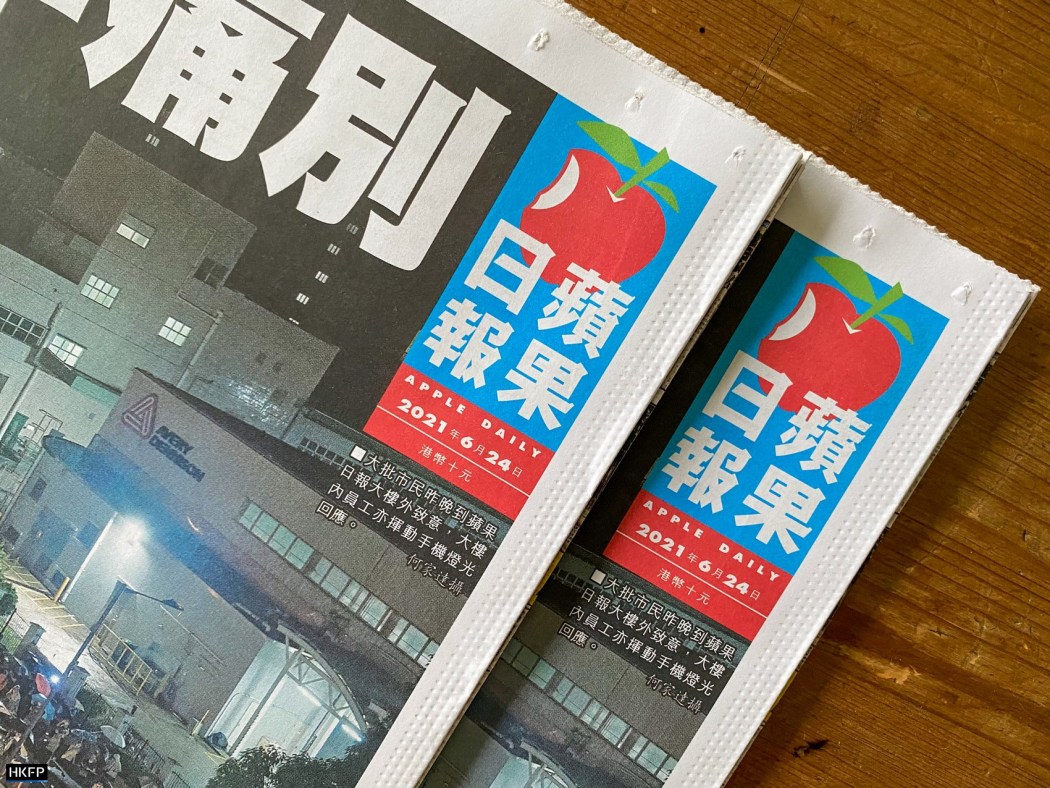
The defence began their questioning of Cheung Kim-hung on Monday, after the prosecution completed their examination last week. Wearing a navy down jacket and jeans, Cheung was escorted to the stand by three corrections officers. For the duration of Monday’s session, he did not look in Lai’s direction.
Responding to questions from defence counsel Robert Pang, Cheung said in Cantonese that Lai’s editorial direction as the founder of Apple Daily was “not simply a set of values.”
Lai’s editorial policy during the extradition bill protests and unrest in 2019 had been to “urge people to protest on the streets and pressure the government into scrapping the extradition law,” Cheung said. Lai told staff to emphasise these news items, he added.
“This was not just an issue of… democracy or freedom of expression,” Cheung said. “The whole newspaper had to do this.”
Cheung added that staff accompanied Lai to protests and to interviews with reporters.

When asked by Pang if it was “open to [him] to not do as Mr Lai instructed,” Cheung said it was not.
Pang also asked Cheung if freedom of expression, one of the newspaper’s values, “included saying no to the boss.”
“I disagree,” Cheung replied.
Lai, 76, faces charges of conspiring to collude with foreign forces under the national security law, and conspiring to publish “seditious” materials under the colonial-era law. He has pleaded not guilty and faces up to life imprisonment if convicted.
Cheung is among six senior Apple Daily employees who were charged alongside Lai with conspiring to collude with foreign forces. They pleaded guilty in November 2022 and will be sentenced after Lai’s trial.
After Cheung, former associate publisher Chan Pui-man and editorial writer Yeung Ching-kee are also set to testify against Lai.
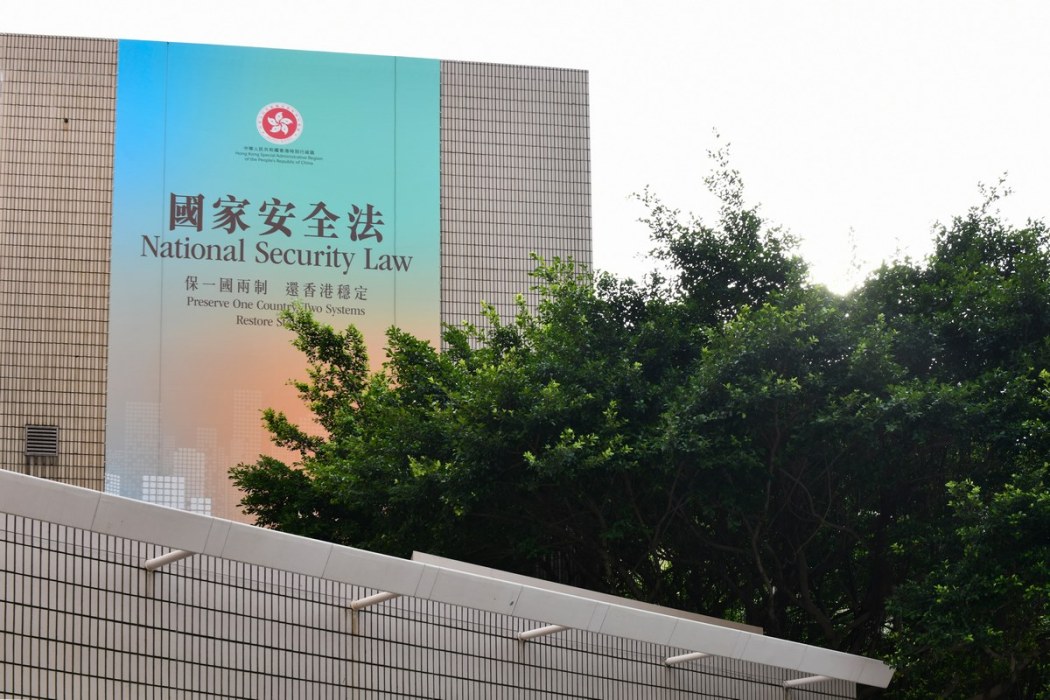
Founded in 1995, Apple Daily was one of Hong Kong’s most prominent newspapers until it was forced to shut down in 2021 following a police raid and the arrest of top executives.
Cheung, in response to Pang’s questions, agreed that Apple Daily was more liberal than other Hong Kong newspapers such as Ming Pao and Sing Tao.
Lunchbox meetings
Part of Monday’s hearing was also devoted to discussing a series “lunchbox meetings” led by Lai with Apple Daily staff.
Cheung said the first such meeting was held in October 2018, the same year that Lai became more involved in the company’s operations as he resumed the role of chairperson.
The ex-publisher told the court that ahead of the meetings, Lai would ask staff to raise questions on workplace messaging app Slack. During the meetings, staff would take turns asking the questions to which Lai would respond.
During the prosecution’s questioning of Cheung, he said that Lai had given staff editorial directions during those meetings. Pang on Tuesday challenged Cheung’s statements, contending that the meetings were more to do with business development than editorial matters.
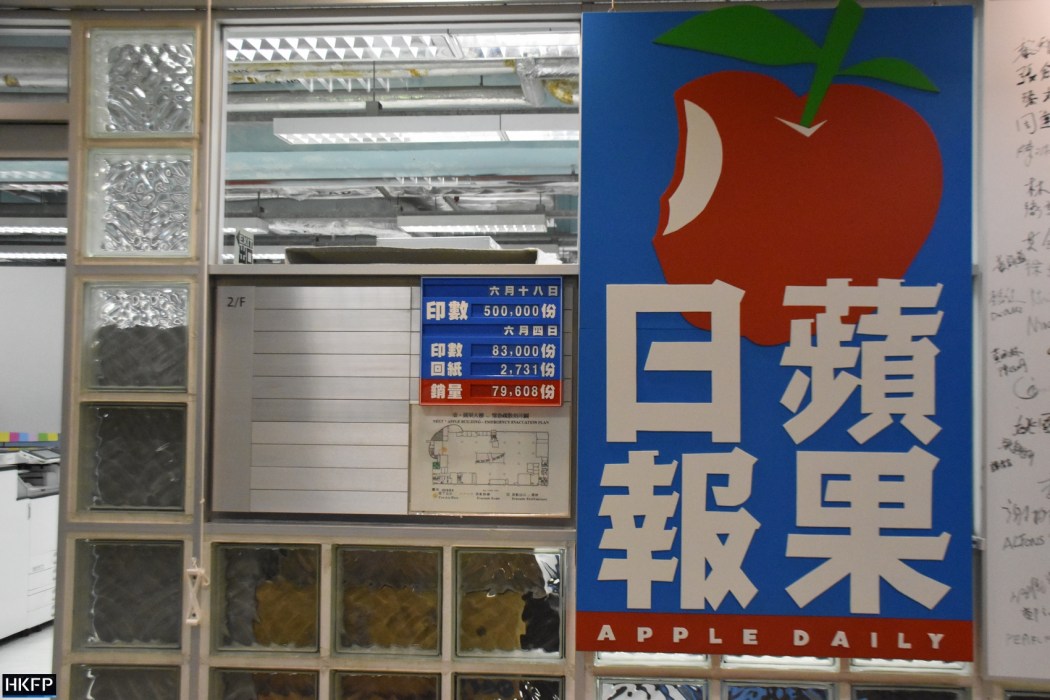
After Cheung told the court that he was tasked with writing up “action points” after each meeting, Pang pulled up an example of the meeting notes Cheung had sent to ex-associate publisher Chan in January 2020.
The senior counsel said the notes were mostly “general business concerns,” for example about design layout and the paper’s Sunday supplement.
Cheung maintained that Lai often gave editorial directions during the meetings, although that was not always the case.
Asked if “the vast majority” of the meetings had “nothing to do with the news department,” Cheung said “it could be put that way.”
No ‘sea change’ in 2014, defence says
With Monday marking Cheung’s eighth day on the witness stand, Pang said his questioning would not take as long as the prosecution’s.
Pang on Monday challenged Cheung on earlier testimony that Apple Daily was mainly focused on entertainment and paparazzi before 2014, when the Umbrella Movement took place. The 79-day civil disobedience campaign saw pro-democracy supporters occupy major roads in a call for universal suffrage.
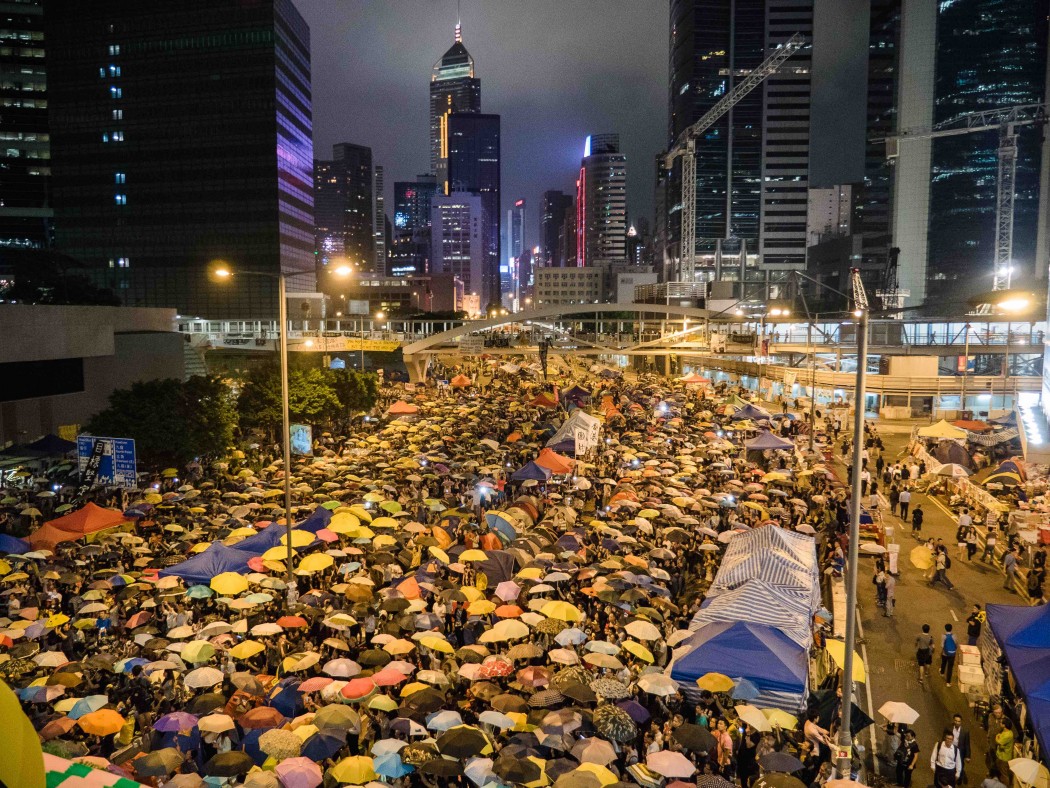
Displaying the front pages of the newspaper before 2014, the senior counsel said the newspaper had “always taken a very strong stance on political issues.”
Pang pulled up copy of Apple Daily from June 2, 1997, which had a photograph of a protest and the headline “7,000 people march for the vindication of June 4.” The date refers to the Tiananmen crackdown in Beijing in 1989, when hundreds, if not thousands, of student protesters are believed to have died at the hands of law enforcement.
The senior counsel also displayed front pages of the newspaper from 1999, 2004, 2005 and 2012. The articles were related to the city’s Tiananmen vigils and pro-democracy protests.
“It’s not as if there was any sea change in 2014. Apple Daily has always encouraged people to take to the street, to let their voices be heard, Pang said.
Cheung said he disagreed. He testified that in 2014, the newspaper did not just write front pages stories telling people to protest, but embarked on a “very large-scale half-year campaign” at Lai’s instruction.
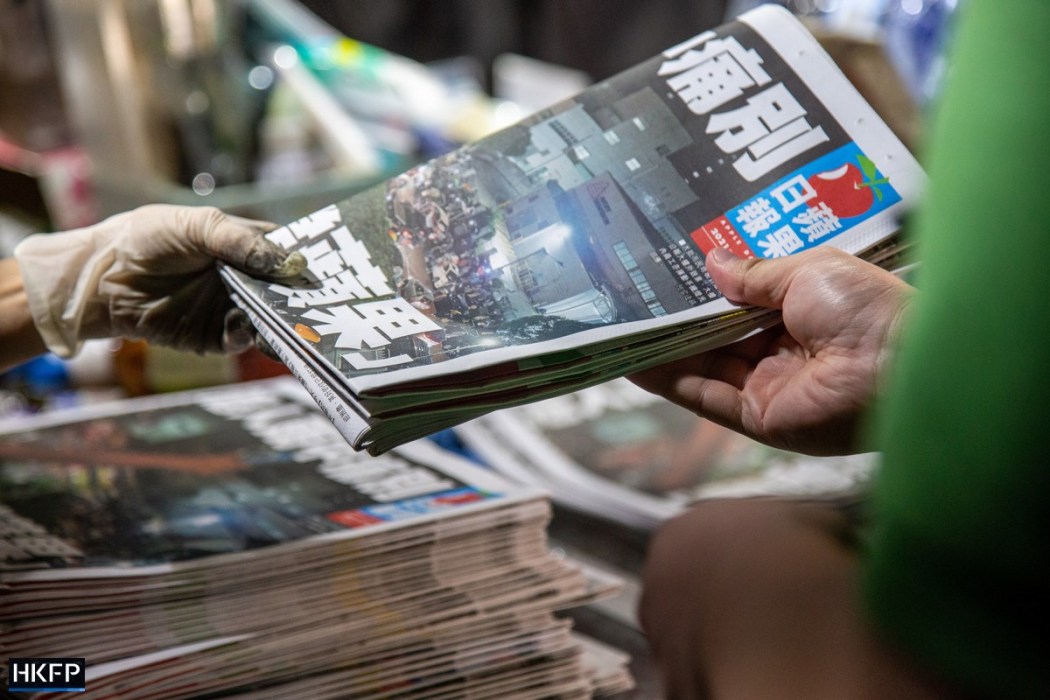
At the time, the Apple Daily founder told the then-publisher to rent advertisement space on building exteriors to oppose a June 2014 white paper from the central government that asserted Beijing’s power over Hong Kong. The campaign also called for pro-democracy supporters to take part in an unofficial referendum by activists to vote on how they would like the city’s leader to be elected.
“There was a big change at Apple Daily in 2014,” Cheung said.
Pang will continue his examination of Cheung on Tuesday.
Beijing imposed a national security law in Hong Kong in June 2020 following a year of protests and unrest sparked by a controversial extradition bill. The legislation criminalises subversion, secession, foreign collusion and terrorism.
Lai’s trial is seen globally as a bellwether for the city’s press freedom under the national security law. Authorities, however, have said that the trial is nothing to do with press freedom and that the law has restored stability to the city.
Lai has been detained since December 2020. He is currently serving a five-year and nine-month sentence in a maximum security facility for a separate fraud case.
Support HKFP | Policies & Ethics | Error/typo? | Contact Us | Newsletter | Transparency & Annual Report | Apps
Help safeguard press freedom & keep HKFP free for all readers by supporting our team

LATEST FROM HKFP
HKFP has an impartial stance, transparent funding, and balanced coverage guided by an Ethics Code and Corrections Policy.
Support press freedom & help us surpass 1,000 monthly Patrons: 100% independent, governed by an ethics code & not-for-profit.
Support HKFP | Policies & Ethics | Error/typo? | Contact Us | Newsletter | Transparency & Annual Report | Apps
Help safeguard press freedom & keep HKFP free for all readers by supporting our team

LATEST FROM HKFP
HKFP has an impartial stance, transparent funding, and balanced coverage guided by an Ethics Code and Corrections Policy.
Support press freedom & help us surpass 1,000 monthly Patrons: 100% independent, governed by an ethics code & not-for-profit.














